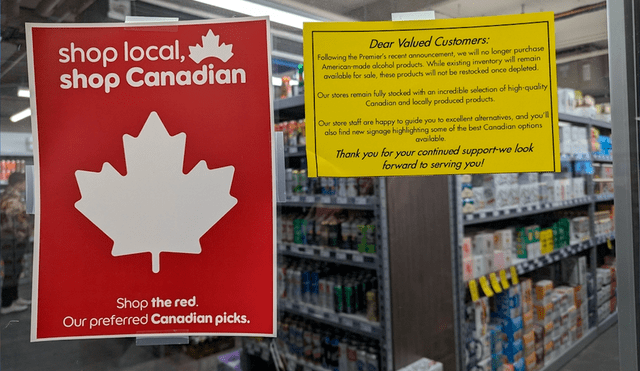US companies facing rejection in stores as ‘Buy Canadian’ movement grows
The "Buy Canadian" movement is causing disruption for U.S. companies trying to sell products in Canadian stores, as rising anti-American sentiment in Canada influences consumer choices and affects cross-border trade.

The "Buy Canadian" movement is having a significant impact on U.S. companies trying to sell their products in Canadian stores. With increasing support for buying local, Canadian consumers are increasingly turning away from American-made goods.
This shift has caused disruption for several U.S.-based businesses, especially as anti-American sentiment grows in Canada. Many companies are now rethinking their distribution strategies and the future of their products in the Canadian market.
U.S. products has declined as "Buy Canadian" movement grows
The "Buy Canadian" movement is causing waves of concern among U.S.-based companies that rely on selling their products in Canadian stores.
California-based Parasol Co, a maker of diapers, had been working with a distributor since January to expand its sales of diapers and baby wipes to Canadian retailers, including convenience stores.
However, in early March, the distributor halted the deal due to rising anti-American sentiment in Canada. The distributor was instructed by a retailer to pause any launch of American brands, citing market conditions. Parasol’s CEO, Jessica Hung, said this disruption was unexpected and has proven to be a significant challenge.
This shift in Canadian retail is a result of patriotic consumerism, especially in light of U.S. policies such as President Donald Trump's threats to impose tariffs on Canadian goods, including steel and aluminum, and his proposals to annex Canada.
These actions have led many Canadian consumers to avoid U.S.-made products. Parasol, which sells products online and at U.S. retailers like Target, had begun modifying their products for the Canadian market, even labeling packages in French.
However, this distribution agreement was ultimately scrapped. Meanwhile, some Canadian consumers, like Rebecca Asselin, are now seeking out Canadian-made products, such as Royale diapers, produced by Irving Personal Care, one of the few Canadian manufacturers of baby diapers.
According to Jason McAllister, Vice President of Business Operations at Irving, demand for Canadian-made diapers has surged, with shipments quadrupling due to the growing demand.
Buy Canadian affect U.S. drinks and citrus exports
The "Buy Canadian" movement isn't just affecting diaper brands. Other U.S. products, including drinks and citrus fruits, are also experiencing setbacks.
Brown-Forman, maker of Jack Daniel's, has seen its products pulled from Canadian liquor stores in response to the movement and retaliatory tariffs. U.S. citrus fruit suppliers have also faced order cancellations from Canadian retailers.
Similarly, California-based GT’s Living Foods has seen reduced orders from Canadian retailers like Walmart due to tariff uncertainty. Smaller businesses like Demeter Fragrances, which manufactures perfumes in Pennsylvania, have canceled plans to expand into Canada, citing the shift in Canadian sentiment toward American products.
As the movement gains momentum, even Canadian companies are experiencing the effects, with some reports suggesting that major retailers like Canadian Tire may reduce offerings of U.S. brands like Fast Orange, a competitor to Canadian-made hand cleaners.












